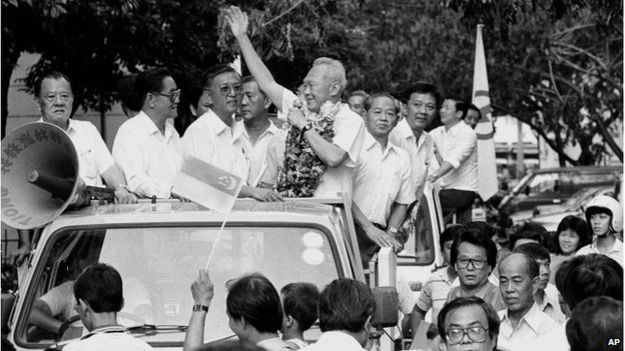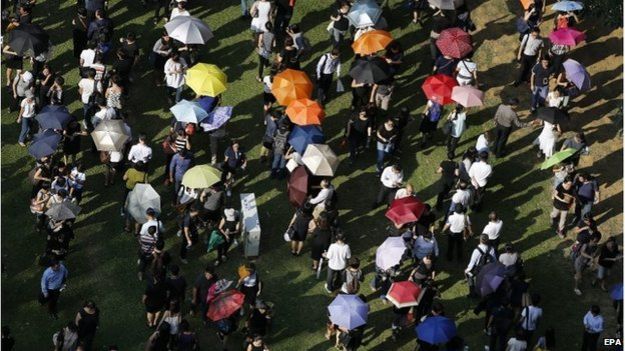Watching the reaction to Lee Kuan Yew’s death from overseas has been a surreal and difficult experience.
As a Singaporean journalist with the BBC, it’s been a privilege to cover many stories about my country over the years. But here was probably its biggest story, garnering the most global attention, that I was missing entirely as I spend two weeks working in London. I’ve had to watch the events of his death unfold, and my fellow Singaporeans grieving from afar.
But my anguish isn’t just professional, it is also personal. As a Singaporean growing up in the 1970s and 80s under Lee Kuan Yew, the influence he had on my life and the lives of many millions of Singaporeans has been immense. The story has been told a million times, how with a tight grip on power, he and his team took a small third world country with limited natural resources and turned it one of the world’s wealthiest countries per capita in a generation.
But what was it like growing up as that transformation took place?

Even as children, we were aware of the constant change, not just externally, with the nation’s skyline, its factories and rivers, but also internally. Campaigns spearheaded by Mr Lee’s government sought to micromanage our behaviour. From courtesy to anti-spitting campaigns, Singaporeans were taught from a young age how to be compliant.
When we were older, we were told how many children we should have and even whom to marry. As graduates, you were encouraged to marry someone with the same level of education, to make real Mr Lee’s vision of social engineering and becoming a nation producing smarter babies.
Watching the thousands throng the streets – first to show their respects to his coffin at Parliament House and then to watch his funeral motorcade go by in a tropical downpour – made me think at first that here at work was the same thing: compliance, from a nation so accustomed to doing as he said. The alternative often meant being sued, or thrown into detention without trial. Most Singaporeans traded up personal freedoms for economic success.

But here at work was something more. Tears and emotions were high, not just in Singapore but for the many Singaporeans living overseas. My extended family, many of whom have emigrated to the US and Canada, spent days debating his legacy on our family group on WhatsApp. If he was having that impact on them, years after they left their country, imagine what sort of influence his death still wielded on many millions more.
It’s hard to put in words the effect he had. For many, including myself, it was a love-hate relationship. Love for the immense transformation his governance brought to Singapore. How it’s now admired as a nation to be emulated by giants such as India, which has Singapore building a new city for it, and China, which had President Xi Jinping dispatching generals to live there to study its model of governance. Being Singaporean makes me hold my orange-red passport proud at immigration lines worldwide.
But hate for the way his executed the transformation, depriving many of free speech, a two-party state, their native Chinese dialects and, if you were a man, the freedom to wear your hair long, get out of military conscription and love a member of the same sex. And then there’s the ban on chewing gum that many foreigners seem to delight in pointing out.
Mr Lee’s influence spanned well over the 31 years that he actually governed. As a senior minister and then “minister mentor” – titles he took after standing down as prime minister in 1990 – his counsel was regularly sought by Singapore’s next generation of leaders, including the current leader, his son, Lee Hsien Loong.
Such a cult of personality has been built around Lee Kuan Yew’s intelligence and vision that continuing on as a successful nation almost seems impossible without him.
It’s made me nervous about the Singapore I shall find when I return, stepping through the comfortable gates of Changi Airport in a little over a week’s time. A Singapore without Lee Kuan Yew.
Source: www.bbc.com







